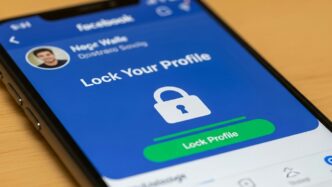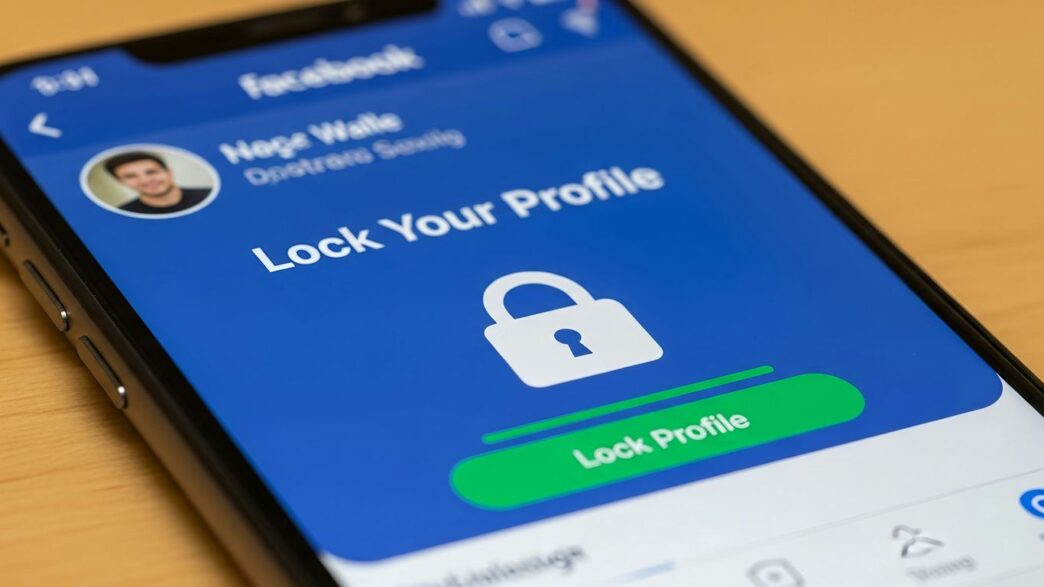In today’s world, pretty much everything we do leaves a digital trail. From ordering groceries to chatting with friends, our information is constantly being collected. This makes understanding data protection and privacy super important. It’s not just about keeping secrets; it’s about having some control over our own digital lives. This article breaks down what data protection and privacy really mean, why they matter so much now, and what we can all do to stay safer online.
Key Takeaways
- Data privacy is about controlling how your personal information is handled, while data protection involves the systems and rules to keep that information safe.
- The digital age brings new challenges, like constant tracking online and the difficulty of keeping up with different privacy laws around the world.
- Laws like GDPR and CCPA are major steps in protecting personal data, but staying compliant is a big job for businesses.
- Individuals can protect themselves by being careful online, using strong passwords, and checking privacy settings. Businesses need good security and to be open about how they use data.
- The future of data protection and privacy will be shaped by new technologies, and it’s important to think about privacy as a basic right for everyone.
Understanding Data Protection and Privacy in the Digital Era

Defining Data Privacy and Its Significance
So, what exactly are we talking about when we say ‘data privacy’? It’s basically about how your personal information is handled and kept safe. Think of it as having control over who sees what about you online and making sure that information isn’t just floating around for anyone to grab. In today’s world, where we share so much online, from what we had for breakfast to our bank details, this stuff has become super important. Our digital footprints are getting bigger every day, and with that comes more risk.
The Evolving Landscape of Digital Privacy
Privacy isn’t what it used to be. Remember when you just had to worry about your mail being opened? Now, it’s a whole different ballgame. Everything we do online leaves a trace, and companies are getting really good at collecting and using that data. It’s like the internet is constantly watching, and sometimes it feels like we’ve lost a lot of that personal space we used to have. This constant tracking and data collection means the rules and what we expect from privacy are always changing.
The Interplay Between Data Protection and Privacy Rights
Data protection and privacy rights are kind of like two sides of the same coin. Data protection is more about the technical and organizational steps taken to keep data safe from breaches and misuse. Think strong passwords, encryption, and secure systems. Privacy rights, on the other hand, are about your individual freedoms – your right to control your information, to know what’s being collected, and to decide how it’s used. Without good data protection, our privacy rights are pretty much useless. It’s a constant balancing act to make sure the technology we use respects these rights.
Challenges to Data Protection and Privacy Online
It feels like everywhere you look online, something is trying to track you. This is a big hurdle for keeping our personal information safe. Think about it: websites, apps, even smart devices are constantly collecting data about what we do, where we go, and what we like. It’s a lot.
The Pervasiveness of Tracking Technologies
These tracking tools, like cookies and invisible pixels, are everywhere. They build detailed profiles of our online habits. Companies use this information for targeted ads, which can sometimes be helpful, but often it feels intrusive. It’s like having someone follow you around the internet, noting every click and every page you visit. This constant monitoring makes it hard to have a truly private online experience. While security measures exist, they often lag behind the clever ways data is collected. It’s a continuous game of catch-up, and individuals need to be aware of these methods to protect themselves.
Navigating Global Privacy Regulations
Privacy laws are a mess, honestly. Each country has its own rules, and for businesses operating worldwide, this is a headache. What’s okay in one place might be a big no-no somewhere else. This patchwork of regulations makes it tough to ensure consistent protection for everyone. For example, the GDPR in Europe has strict rules, but then you have different laws in the US, like the CCPA, and even more variations across Asia and other continents. Trying to keep up with all of them is a huge task, and it leaves gaps where privacy can be compromised. It’s a complex legal landscape that’s always changing, especially with new technologies popping up all the time. You can find more about how these laws work on official government sites.
Balancing Innovation with Privacy Safeguards
This is the million-dollar question, isn’t it? We love the new gadgets and services that technology brings, but they often come at a privacy cost. Companies want to innovate and use data to make things better or create new products. But how much personal information is too much? Finding that sweet spot where innovation can thrive without sacrificing our privacy is a constant struggle. It requires a thoughtful approach from developers and a clear understanding from users about what they are agreeing to. We need to push for technologies that are designed with privacy in mind from the start, not as an afterthought. It’s about making sure that the digital world benefits us without making us feel exposed.
Legal Frameworks Governing Data Protection and Privacy

So, what’s actually in place to keep our digital lives from becoming a free-for-all? It turns out there are quite a few rules and regulations trying to keep up with how fast technology moves. It’s not just one big law; it’s more like a patchwork quilt of different rules from different places.
Key Data Protection Regulations Worldwide
When we talk about data protection, the General Data Protection Regulation (GDPR) from the European Union often comes up first. It’s a pretty big deal and sets a high bar for how companies handle personal data of people in the EU. If a company, no matter where it’s located, processes data of EU residents, it has to play by GDPR rules. This includes getting clear, understandable consent from people before using their data, and people can also take back that consent later. Fines for not following GDPR can be hefty – up to 20 million euros or 4% of a company’s yearly global revenue, whichever is more.
In the United States, things are a bit different. There isn’t one single, overarching federal law covering all personal data. Instead, there’s a collection of laws that focus on specific areas. Think of things like:
- HIPAA: For health information.
- COPPA: For children’s online privacy.
- FCRA: Related to credit reporting.
On top of these federal rules, many states have their own laws. California’s Consumer Privacy Act (CCPA) is a well-known example, giving residents rights about their personal information, like knowing what’s collected and opting out of its sale. Other states are following suit, creating their own versions of data protection.
Beyond the EU and US, other countries have their own laws too. Canada has PIPEDA, Japan has APPI, and Brazil has LGPD, to name a few. These laws generally cover how data should be processed, what kind of consent is needed, security measures, and what rights individuals have, though the specifics can vary quite a bit.
Compliance as a Business Imperative
For any business operating today, understanding and following these various data protection laws isn’t just a good idea; it’s pretty much a requirement. Ignoring them can lead to serious trouble, not just in terms of fines but also damage to a company’s reputation. People are more aware of their privacy rights now, and a data breach or misuse of information can quickly turn customers away.
So, what does compliance actually look like?
- Know Your Data: Figure out what personal data you collect, why you collect it, where you store it, and who has access to it.
- Get Consent Right: Make sure you’re getting clear, informed consent from individuals before you collect or use their data, especially for things like marketing.
- Secure Your Data: Implement strong security measures to protect the data you hold from breaches or unauthorized access.
- Respect Rights: Be prepared to handle requests from individuals who want to access, correct, or delete their data.
- Stay Updated: Laws change, so businesses need to keep an eye on new regulations and update their practices accordingly.
The Role of Legal Protections in a Data-Driven Economy
In our world today, data is often called the new oil. It fuels innovation, drives business decisions, and powers many of the services we use daily. But this reliance on data also means that strong legal protections are more important than ever. These laws act as guardrails, trying to balance the benefits of using data with the need to protect individual privacy. They help build trust between consumers and businesses, making sure that personal information isn’t just treated as a commodity to be exploited without consequence. Without these legal frameworks, the digital economy could easily become a place where individual privacy is constantly at risk.
Strategies for Enhancing Data Protection and Privacy
So, how do we actually make our digital lives safer and keep our personal information from falling into the wrong hands? It’s not just about hoping for the best; there are concrete steps we can all take. Being aware is the first big step.
Individual Vigilance and Proactive Measures
For us regular folks, it often feels like a losing battle against big tech companies and sophisticated hackers. But honestly, there are simple things that make a real difference. Think of it like locking your front door – you wouldn’t just leave it wide open, right? The same applies online.
- Password Power: Use strong, unique passwords for everything. A password manager can be a lifesaver here, keeping track of all those complex combinations so you don’t have to.
- Think Before You Click: Be super careful about links and attachments in emails or messages, especially if they seem a bit off. Phishing scams are everywhere, and they’re getting smarter.
- Review Your Settings: Take a few minutes every now and then to check the privacy settings on your social media, apps, and even your phone. You might be sharing more than you realize.
- Limit What You Share: Do you really need to give that app your location 24/7? Or provide your birthdate to every single website? Be selective about the personal details you hand over.
Organizational Best Practices for Data Security
Businesses have a much bigger responsibility, and frankly, a lot more data to protect. It’s not just about avoiding fines; it’s about maintaining trust with customers. When a company gets breached, it’s a huge headache for everyone involved. Implementing solid security measures is key. This means things like:
- Data Minimization: Only collect the data you absolutely need for a specific purpose. Don’t hoard information just in case. The less data you have, the less there is to lose.
- Access Control: Make sure only the right people within the company can access sensitive information. Think strict permissions and regular reviews.
- Regular Assessments: Periodically check your systems for weak spots. It’s like a regular check-up for your digital infrastructure. Organizations should conduct privacy assessments to identify vulnerabilities, develop clear privacy policies, and implement robust breach response plans [e0da].
- Employee Training: Your staff are often the first line of defense. Regular training on security best practices and recognizing threats is super important.
The Importance of Transparency and Informed Consent
This is where things get really interesting. People should know what’s happening with their data. It’s not fair to have your information collected and used without you having a clue. Companies need to be upfront about it.
- Clear Privacy Policies: Forget those long, confusing legal documents. Policies should be easy to read and understand. What data are you collecting? Why? Who sees it? How long do you keep it?
- Meaningful Consent: Getting a checkbox ticked isn’t always enough. Consent should be informed and freely given. People should have a real choice, and it should be easy for them to change their minds.
- Data Subject Rights: Individuals have rights – like the right to see their data, correct it, or even have it deleted. Companies need systems in place to handle these requests smoothly.
The Future of Data Protection and Privacy
Emerging Technologies and Privacy Concerns
So, what’s next for our digital privacy? It’s a big question, and honestly, the answer is still being written. We’re seeing new tech pop up all the time, and each one brings its own set of privacy puzzles. Think about AI – it’s getting really good at figuring out what we might do next, which is cool for some things, but also a little unnerving. Then there’s the Internet of Things, where everything from your fridge to your watch is connected and sharing data. It’s convenient, sure, but it also means a lot more information about us is out there. The real challenge is figuring out how to use these powerful tools without accidentally (or intentionally) crossing privacy lines. It’s a constant balancing act.
Fostering a Privacy-First Mindset
Moving forward, it feels like we all need to get better at thinking about privacy from the start, not as an afterthought. For companies, this means building privacy into their products and services from day one. It’s about asking, ‘How can we do this while respecting people’s data?’ For us as individuals, it means being more aware of what information we’re sharing and with whom. It’s not about being paranoid, but just being a bit more mindful.
Here are a few things we can all do:
- Read those privacy policies (or at least skim them): Yeah, they’re long and boring, but they often tell you what companies plan to do with your data.
- Adjust your settings: Most apps and websites have privacy settings. Take a few minutes to check them out and tweak them to your comfort level.
- Use privacy tools: Things like VPNs or privacy-focused browsers can add an extra layer of protection.
Upholding Privacy as a Fundamental Human Right
Ultimately, privacy isn’t just about hiding things; it’s about control and dignity. It’s about having the space to be ourselves without constant surveillance or the fear that our personal information will be misused. As technology keeps marching forward, it’s really important that we don’t lose sight of this. Laws and regulations are part of it, but so is our own attitude. We need to keep pushing for a digital world where privacy is respected, not just as a nice-to-have, but as a basic human right. It’s a big job, but it’s one worth doing for the future.
Wrapping It Up
So, we’ve talked a lot about how tricky data privacy can be these days. It feels like every time we turn around, there’s a new way our information is being collected or used. It’s not just about big companies either; even everyday apps want a piece of the pie. The laws are changing, and honestly, it’s hard to keep up. But here’s the thing: we can’t just ignore it. Being aware of what’s happening with our data and taking small steps, like checking privacy settings or using stronger passwords, really does make a difference. It’s a constant balancing act between enjoying all the cool stuff the digital world offers and keeping our personal lives private. It’s going to keep evolving, so staying informed is key.
Frequently Asked Questions
What is data privacy and why is it important?
Data privacy is all about keeping your personal information safe and making sure you have control over who sees it and what they do with it. It’s super important because in today’s world, so much of our lives are online, and our information can be easily collected and used. Protecting it helps prevent things like identity theft and unwanted tracking.
What are tracking technologies and how do they affect privacy?
Tracking technologies are like little digital spies, such as cookies, that websites use to watch what you do online. They can see which pages you visit and even what device you’re using. While sometimes used to make websites work better or show you ads you might like, they can also collect a lot of information about you without you even knowing, which can feel like a privacy invasion.
Why are there so many different privacy laws around the world?
Different countries have different ideas about how personal information should be handled. So, they create their own rules, like the GDPR in Europe or the CCPA in California. This can be confusing for big companies that operate everywhere, and it means people’s privacy rights might be different depending on where they are.
How can I protect my own data online?
You can protect your data by using strong, unique passwords for different accounts and being careful about what personal details you share online. It’s also a good idea to check your privacy settings on apps and websites regularly and be wary of suspicious emails or links that might be trying to trick you into giving up information.
What should companies do to protect user data?
Companies need to be really careful with your data. They should have strong security systems to prevent hackers from getting in, be clear about how they collect and use your information in their privacy policies, and only collect what they really need. They also have to follow all the privacy laws that apply to them.
Is privacy a basic human right?
Yes, many people believe that privacy is a fundamental human right. This means everyone should have the right to control their personal information and be free from unfair spying or data misuse. As technology keeps changing, it’s more important than ever to make sure privacy is protected for everyone.














